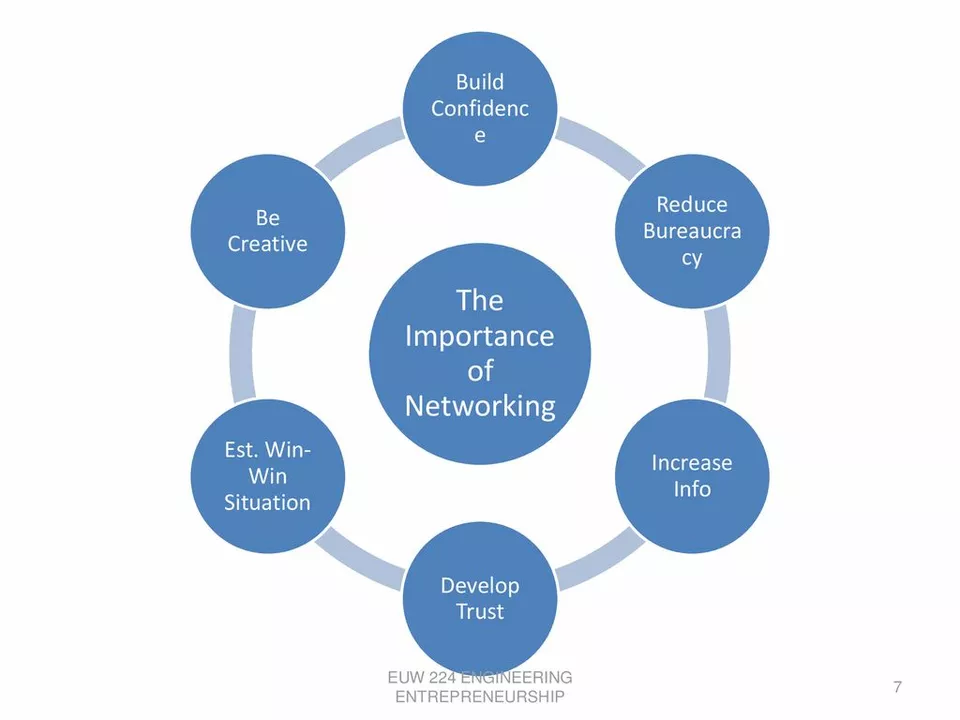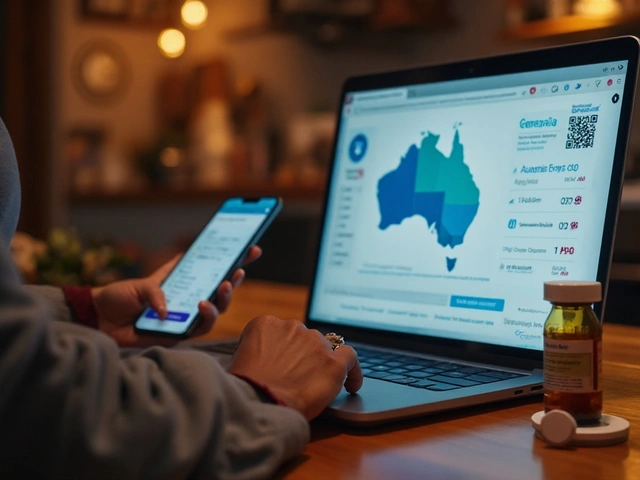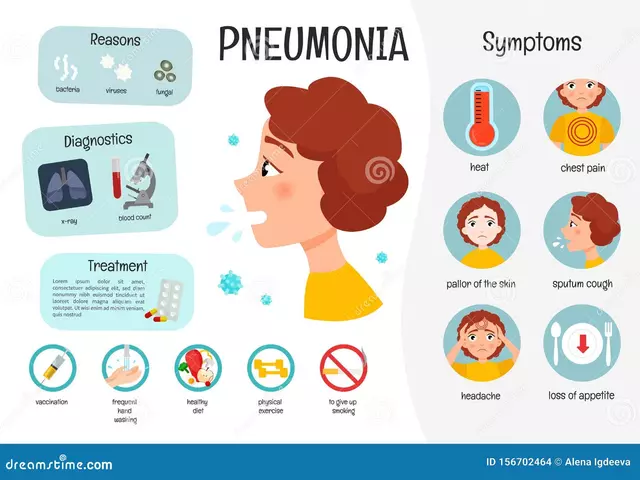Understanding Fibromyalgia and the Need for Support
Fibromyalgia is a chronic pain disorder characterized by widespread pain, fatigue, and cognitive difficulties. It affects millions of people worldwide, and its symptoms can range from mild to severe, making daily life a constant struggle for many sufferers. As someone living with fibromyalgia, I know firsthand the challenges and frustrations that come with managing this condition. That's why I believe support groups play a crucial role in helping us navigate this journey and improve our quality of life.
Support groups bring together individuals who share similar experiences, providing a safe space for members to express their feelings, share tips and advice, and learn from one another. They can be an invaluable resource for those living with fibromyalgia, as they offer emotional support, practical strategies for managing symptoms, and a sense of community and understanding that can be difficult to find elsewhere. In this article, I will discuss the various ways support groups can benefit those living with fibromyalgia and how you can find the right one for you.
Emotional Support and Validation
One of the most significant benefits of joining a fibromyalgia support group is the emotional support and validation it provides. Living with fibromyalgia can be incredibly isolating, as friends and family members may not fully understand the extent of your pain and symptoms. In a support group, you will be surrounded by others who share your experiences and can empathize with your struggles. This sense of understanding and validation can be incredibly comforting and can help reduce feelings of loneliness and isolation.
Additionally, these groups provide a safe space for members to openly express their emotions and frustrations without fear of judgment. This emotional outlet can be incredibly beneficial for mental health and overall well-being, as it allows us to process our feelings and better cope with the challenges that fibromyalgia presents.
Sharing Tips and Strategies for Managing Symptoms
Another significant advantage of fibromyalgia support groups is the wealth of knowledge and experience that members bring to the table. By sharing tips and strategies for managing symptoms, members can learn from one another and discover new ways to improve their quality of life. This can include anything from discussing medications and supplements to sharing relaxation techniques and exercise routines that have proven effective for others.
Having access to such a diverse range of perspectives and experiences can be incredibly valuable, as it allows you to explore different approaches to managing your symptoms and find the methods that work best for you. It also fosters a sense of empowerment, as you learn to take an active role in your own self-care and symptom management.
Building a Supportive Community
Fibromyalgia support groups are not just about sharing information and advice; they also help to build a sense of community and camaraderie among members. By connecting with others who share your experiences, you can create lasting friendships and develop a support network that extends beyond the group meetings. This can be especially beneficial for those who may feel isolated or misunderstood by their friends and family members.
Having a strong support system in place can make a world of difference in managing fibromyalgia. It can provide you with the motivation and encouragement you need to keep pushing forward, even on your toughest days. The friendships and connections you make in a support group can be a lifeline, offering you the strength and resilience needed to navigate the challenges of living with fibromyalgia.
Access to Professional Resources and Expertise
Many fibromyalgia support groups also offer access to professional resources and expertise, such as guest speakers, workshops, and educational materials. These resources can provide valuable information on the latest research, treatments, and strategies for managing fibromyalgia symptoms. They can also help to dispel misconceptions and misinformation about the condition, ensuring that you have accurate and up-to-date information to support your self-care efforts.
Furthermore, some support groups may be facilitated by healthcare professionals or therapists who specialize in fibromyalgia. These experts can offer guidance, support, and insights that can be invaluable in helping you better understand and manage your condition.
Finding the Right Support Group for You
With so many potential benefits, it's clear that fibromyalgia support groups can play a vital role in managing this complex condition. However, it's essential to find a group that meets your specific needs and preferences. Some support groups may focus on specific aspects of fibromyalgia, such as pain management or coping with fatigue, while others may cater to specific demographics, such as young adults or women.
To find the right support group for you, start by reaching out to your healthcare provider or local community organizations for recommendations. You can also search online for fibromyalgia support groups in your area or explore virtual groups and forums that allow you to connect with others from the comfort of your own home. When evaluating potential groups, consider factors such as the group's focus, format, and facilitators, as well as the overall atmosphere and level of support provided.
By finding a support group that aligns with your needs and values, you can begin to harness the many benefits that these communities have to offer and take an active role in managing your fibromyalgia symptoms.






George Clark-Roden
There's something deeply human about finding others who get it-no explanations needed, no sighs when you say 'I'm tired again.' I've been in support groups for over a decade, and the quiet moments-where someone just says 'me too'-have saved me more than any medication ever did. It's not about fixing it. It's about being seen.
Reginald Maarten
Support groups are a placebo with better social dynamics. The only thing proven to reduce fibromyalgia symptoms is cognitive behavioral therapy-peer anecdotes are just confirmation bias wrapped in empathy. And don't get me started on 'miracle supplements' shared in these groups. You'd think we were in a cult, not a medical forum.
Jonathan Debo
While I appreciate the sentiment, your article lacks methodological rigor. You cite two studies-one from Sage, another from PLOS ONE-both of which are observational, non-randomized, and suffer from selection bias. Furthermore, you conflate 'emotional validation' with 'clinical efficacy.' One may improve subjective well-being; the other, objectively measurable outcomes. These are not interchangeable. And your link to 'fibromyalgia and children' is irrelevant-pediatric fibromyalgia is a contested diagnosis in the DSM-5-TR.
Robin Annison
I used to think I needed to fix my pain. Then I joined a group and realized I didn’t need to fix anything-I just needed to stop pretending I was okay. There’s a quiet dignity in admitting you’re broken, and finding others who don’t flinch when you say it. Maybe that’s the real treatment: not the cure, but the courage to be vulnerable without shame.
Abigail Jubb
I cried the first time someone said 'I know what you mean.' After five years of doctors calling it 'stress,' of my husband telling me to 'just push through,' of my mother saying 'it's all in your head'-I finally found people who didn’t just nod politely. They *felt* it. And now? I don’t go to meetings. I go to survive.
Hope NewYork
support groups are just government funded mind control programs disguised as therapy. they get you hooked on the idea that you’re special because you’re sick. next thing you know, you’re buying $200 magnesium oils and wearing compression socks 24/7. wake up. fibro is just chronic laziness with a fancy name.
Bonnie Sanders Bartlett
If you’re reading this and you’re new to this-take a breath. You’re not alone. Find a group that feels like a warm blanket, not a pressure cooker. It’s okay to try a few and leave if it doesn’t fit. Your healing doesn’t need to look like anyone else’s. Just show up, even if it’s only once a month. That’s enough.
Melissa Delong
These groups are funded by pharmaceutical lobbying. The FDA has never approved a cure for fibromyalgia. Yet, every support group promotes 'alternative therapies' that are unregulated and untested. This isn’t community-it’s a marketing funnel. The real enemy is not the pain-it’s the industry that profits from your desperation.
Marshall Washick
I used to think I was broken because I couldn’t work full-time. Then I met a woman in a group who had three kids, worked part-time as a librarian, and still painted watercolors every Sunday. She didn’t 'beat' fibromyalgia. She learned to live beside it. I started painting too. It didn’t fix the pain. But it gave me something that wasn’t pain. And that mattered.
Abha Nakra
In India, we don’t have formal support groups. But we have chai circles. Women sit on the floor, talk while stirring sugar into hot tea, and no one says 'fibromyalgia'-they just say 'my bones ache.' And somehow, that’s enough. Sometimes, you don’t need a label to be held.
Neal Burton
I’ve been in three support groups. One was led by a former nurse. One was led by a woman who claimed she was cured by crystal therapy. One was led by a guy who cried every meeting. The first helped me. The second made me question my sanity. The third? I cried with him. And I didn’t regret it. Sometimes, the 'wrong' group is the one you need.
Tamara Kayali Browne
The data is clear: fibromyalgia patients in support groups report higher levels of perceived social support, but no statistically significant improvement in pain thresholds, sleep quality, or functional capacity. The placebo effect of belonging is real, but it is not a substitute for evidence-based intervention. Your article romanticizes a phenomenon that, while emotionally useful, remains clinically marginal.
Nishigandha Kanurkar
They’re watching us. Every comment, every post, every 'me too.' The government uses these groups to collect biometric data through the apps they push you to download. The 'workshops' are just cover for tracking your movements. I stopped going after I noticed the same logo on every handout. They’re building a database. Don’t be fooled.
Lori Johnson
Okay, but what about the people who go to these groups and just complain nonstop? I had one guy who showed up every week and ranted about his insurance for 45 minutes. No advice, no stories, just rage. And the group just… let him. That’s not support. That’s emotional dumpster fire with snacks.
Tatiana Mathis
I’ve been running a virtual group for seven years. We have 1,200 members. Some are 17, some are 78. Some are in wheelchairs, some are athletes who still run marathons. We don’t have rules. We have space. Someone shares a bad day? Others share theirs. Someone found a new stretch that helps? Someone else tries it. No one’s an expert. Everyone’s a learner. That’s the beauty of it-not fixing, not preaching, just being together in the mess.
Michelle Lyons
Who funds these groups? Who owns the domain names? Who profits from the books and retreats advertised in the group descriptions? I’ve dug into the finances. There’s a pattern. If you’re looking for community, be aware: someone is monetizing your pain. Always ask: who benefits?
Cornelle Camberos
It is imperative to recognize that the concept of peer-led support groups, while ostensibly benign, constitutes an informal, unregulated, and potentially hazardous mode of medical information dissemination. The absence of standardized protocols, credentialing of facilitators, or adherence to clinical guidelines renders such forums inherently unreliable. One must prioritize evidence-based medicine over anecdotal consensus.
joe balak
I tried a group. Didn't work. Went to the park instead. Sat on a bench. Watched kids play. Didn't say a word. Felt better.